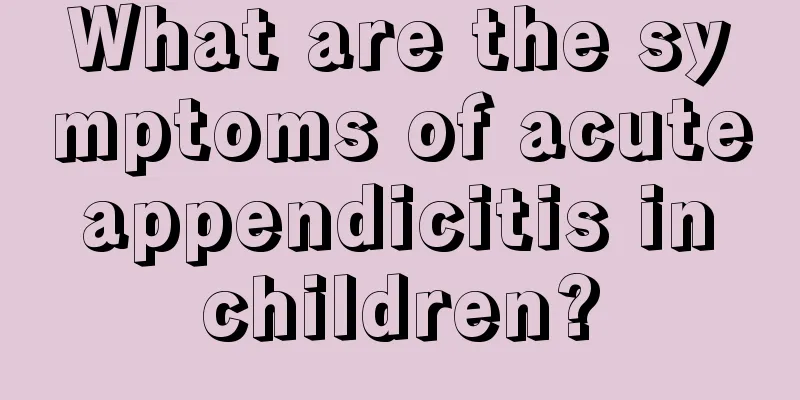How to treat polio?

|
Polio is a well-known disease. Another name for the disease is poliomyelitis. Once contracted, the patient's appetite will decrease, the body will have a fever, and the mood will become irritable. It will also be accompanied by symptoms such as nausea and vomiting, headache, sore throat, and severe cases can even lead to paralysis. So this is a serious disease. What are the treatments? 1. Bed rest The patient should stay in bed until the fever subsides for 1 week, be isolated for 40 days, and avoid physical activity for at least 2 weeks thereafter. When lying in bed, use a footrest to keep your feet and calves at a correct angle to facilitate functional recovery. 2. Symptomatic treatment Antipyretics, analgesics and sedatives can be used to relieve systemic muscle spasms, discomfort and pain; apply hot compresses every 2 to 4 hours for 15 to 30 minutes each time; hot water baths are also effective, especially for young children, and have a synergistic effect when used in combination with analgesics; if conditions permit, intravenous infusion of immunoglobulin 400 mg/(kg·day) can be used for 2 to 3 consecutive days to alleviate the condition. Interferon can be used in the early stage, 1 million U/d, intramuscular injection, 14 days as a course of treatment; slight passive exercise can avoid deformity. 3. Paralysis (1) Correct posture: When the patient lies in bed, the knees are slightly bent, the hips and spine can be straightened with a board or sandbag, and the ankle joint is at 90 degrees. Perform active and passive exercises as soon as the pain disappears to avoid bone deformities. (2) Proper nutrition: A nutritious diet and plenty of water should be provided. If sweating is caused by high ambient temperature or hot compresses, sodium salt should be supplemented. In case of anorexia, a gastric tube can be used to ensure food and water intake. (3) Drug treatment: Drugs that promote nerve conduction function, such as dibazole, galantamine, vitamin B12, etc.; those with secondary infection can use appropriate antibiotics for treatment. (4) Bulbar paralysis: ① Keep the airway open: use a low head position (raise the bed legs to 20° to 25°) to prevent inhalation of saliva, food, vomit, etc. Avoid gastric tube feeding in the first few days and use intravenous nutrition; ② Measure blood pressure twice a day. If hypertensive encephalopathy occurs, it should be treated promptly; ③ Patients with vocal cord paralysis and respiratory muscle paralysis require tracheotomy, and those with impaired ventilation require mechanical assisted breathing. 4. Recovery period and sequelae period Start active and passive exercises early to prevent muscle atrophy. Acupuncture, massage and physical therapy can also be used to promote functional recovery, and severe limb deformities can be corrected surgically. |
<<: Why does my child have itchy red bumps all over his body?
Recommend
How to get kids to eat
With the improvement of living conditions, more a...
What's wrong with children having dry cough after exercise?
Some children do not show any abnormalities when ...
How to treat acute tonsillitis in children?
Acute tonsillitis in children is one of the commo...
What is the situation of baby's hair sweating easily?
Some mothers of babies see that their baby's ...
Four-year-old baby has diarrhea
Generally speaking, if a four-year-old baby has d...
What causes cerebral palsy in children?
In fact, in many cases, cerebral palsy in childre...
Children with sore throat and fever should be careful about their diet
Children are still in the stage of physical growt...
What are the dangers of chronic pharyngitis in babies?
In many cases, we often feel that there is a fore...
What to do if your child always hits others
Children are naughty by nature and have some bad ...
Three-year-old baby suddenly has a fever
Usually if people have a fever it is because of a...
What to do if a one-month-old baby catches a cold
Because children's body parts are not fully d...
What should I do if a lump appears on the needle hole after vaccination?
As babies grow older, in order to ensure their he...
9 month old baby has a cold
In fact, the immune system of a 9-month-old baby ...
What are the symptoms of encephalitis in children?
Diseases like encephalitis have a very high incid...
Can children eat Astragalus?
Since children's organs are not fully develop...









